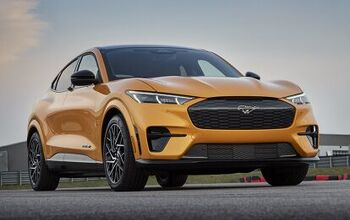GM No Longer Building Nikola Electric Pickup, Nixes Equity Stake

On Monday, General Motors and Nikola Corp announced a revamped agreement that eliminates an equity stake in the startup for the Detroit automaker and nixed any plan for manufacturing Nikola’s electric pickup truck. This makes the keystone of the revised contract their collaborative work on fuel-cell development, represents a major setback in their partnership, and makes GM management look like rubes for having announced a sizable commitment that had to be walked back after a short seller claimed Nikola was fraudulently representing itself.
Despite having much to gain by torpedoing the EV startup’s curiously high share price, the associated Hindenburg report raised serious questions about exactly how much progress Nikola had made. The short seller effectively accused the company of fraud, something Nikola denied. Though subpoenas from the Securities and Exchange Commission and Department of Justice still began arriving at its offices in late September. Founder and former executive chairman Trevor Milton stepped down around this period. At the time, the company said it was cooperating with the investigations “and will continue to cooperate, with these and any other regulatory or governmental requests.”
Though, if they aren’t building it soon, there’s little point. The Badger was intentionally being plotted to intercept Tesla’s fast-approaching Cybertruck and to combat the all-electric offerings planned by the Ford Motor Company. The Blue Oval is currently in the midst of electrifying the F-Series and threw a sizable amount of money at Rivian so it could use its skateboard platform to manufacture EVs for the Ford and Lincoln brands. While that deal also seems to have soured during the early stages of the pandemic, the Detroit automaker has since clarified that it will use Rivian’s hardware to manufacture an EV for Ford but not Lincoln.
The news definitely took a sizable bite out of Nikola’s share price, but the company has seen worse and is already showing signs that it might rally as investors learned GM still intends to supply some of the necessary hardware for Nikola’s commercial rigs. However, it’s slightly curious to see the legacy automaker supplying the startup with fuel-cell systems and its Ultium battery tech when the whole point of spending money on Nikola was to gain access to its purportedly cutting-edge technologies for alternative forms of propulsion and energy storage. Nikola also has partnerships with Bosch and CNH Industrial to supply it find solutions to its upcoming hydrogen and battery-powered products.
Frankly, we still don’t see what the startup is bringing to the table beyond a lot of promises and some relatively slick designs. But Nikola has large aspirations encompassing more than just truck production. It still wants to find a company it can partner with to establish a national hydrogen-fueling network necessary for FCEVs. As things currently stand, hydrogen-powered vehicles cannot stray more than a few hundred miles from their coastal hub in the United States and a strip of stations situated in Central Europe.
[Image: Nikola]

A staunch consumer advocate tracking industry trends and regulation. Before joining TTAC, Matt spent a decade working for marketing and research firms based in NYC. Clients included several of the world’s largest automakers, global tire brands, and aftermarket part suppliers. Dissatisfied with the corporate world and resentful of having to wear suits everyday, he pivoted to writing about cars. Since then, that man has become an ardent supporter of the right-to-repair movement, been interviewed on the auto industry by national radio broadcasts, driven more rental cars than anyone ever should, participated in amateur rallying events, and received the requisite minimum training as sanctioned by the SCCA. Handy with a wrench, Matt grew up surrounded by Detroit auto workers and managed to get a pizza delivery job before he was legally eligible. He later found himself driving box trucks through Manhattan, guaranteeing future sympathy for actual truckers. He continues to conduct research pertaining to the automotive sector as an independent contractor and has since moved back to his native Michigan, closer to where the cars are born. A contrarian, Matt claims to prefer understeer — stating that front and all-wheel drive vehicles cater best to his driving style.
More by Matt Posky
Latest Car Reviews
Read moreLatest Product Reviews
Read moreRecent Comments
- Jkross22 Sure, but it depends on the price. All EVs cost too much and I'm talking about all costs. Depreciation, lack of public/available/reliable charging, concerns about repairability (H/K). Look at the battering the Mercedes and Ford EV's are taking on depreciation. As another site mentioned in the last few days, cars aren't supposed to depreciate by 40-50% in a year or 2.
- Jkross22 Ford already has an affordable EV. 2 year old Mach-E's are extraordinarily affordable.
- Lou_BC How does the lower case "armada" differ from the upper case "Armada"?
- TMA1 Question no one asked: "What anonymous blob with ugly wheels will the Chinese market like?"BMW designers: "Here's your new 4-series."see also: Lincoln Nautilus
- Ivor Honda with Toyota engine and powertrain would be the perfect choice..we need to dump the turbos n cut. 😀



































Comments
Join the conversation
I look forward to the lawsuits.
I knew I'd seen that snout before (Nikola's vaporware semi tractor). https://i.ytimg.com/vi/bjjpWEHvLho/maxresdefault.jpg